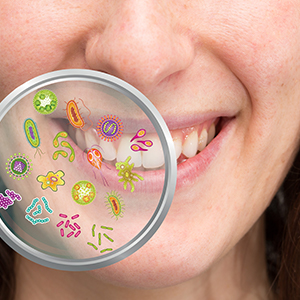
Even with the best preventive care 一 including brushing, flossing, and routine dental exams 一it’s still possible to notice signs of oral disease. That’s where oral pathology comes in. Oral pathology refers to the study, diagnosis, and treatment of diseases in your oral cavity.
Because early detection of problems can help expedite the right treatment, our team of providers here at Northern Virginia Oral, Maxillofacial & Implant Surgery are experts when it comes to performing biopsies and recommending the appropriate preventive measures.
In this blog, we explore what oral pathology is and who can benefit from it.
Diagnosing and treating oral diseases
Oral pathology is a branch of oral health care designed to identify and treat diseases that affect your mouth as well as the surrounding structures, i.e., your bones, joints, salivary glands, and skin around your mouth.
If you have suspicious symptoms, including oral lesions, bumps, or growths, a biopsy can help determine what the specific growth or lesion is so that you can receive the appropriate treatments.
Four common diseases oral pathologists diagnose and treat include:
- Herpes simplex virus type 1 (HSV-1)
- Thrush
- Black hairy tongue
- Oral cancer
Symptoms can vary between each of these conditions. Herpes simplex virus type 1 may cause blisters around your mouth as well as tingling sensations in your mouth. Thrush is a fungal infection that causes white or red patches in your mouth. It is common in nursing babies as well as adults with diabetes, a weakened immune system, or those taking certain medications.
Black hairy tongue can cause bad breath and a discolored tongue. Finally, oral cancer can cause unusual sores or lumps. Each of these conditions requires different treatments, which is why oral pathology is so important: it allows you to receive the right treatment in a timely fashion.
What is it like to have a biopsy?
The thought of a biopsy might be unnerving, but rest assured you’ll remain comfortable thanks to a local anesthetic. Once the local anesthetic takes effect, a small portion of the affected tissue is removed. We then send it to a laboratory, where it’s examined carefully.
Depending on where the biopsy is performed and how much tissue is removed, your provider may prescribe antibiotics and suggest any necessary dietary changes while the affected area heals.
When to consider oral pathology
If you notice any changes in your mouth, teeth, gums, lips, tongue, or other soft tissues, don’t hesitate to schedule an appointment at Northern Virginia Oral, Maxillofacial & Implant Surgery. Notable changes include the appearance of bumps, lesions or sores, bad breath unrelated to food choices, changes to your tongue, pain, dry mouth (sometimes called cottonmouth), changes to your sense of taste, itchiness in your mouth, and pain when eating.
It’s tempting to consider waiting until your next routine exam to bring up these changes, but the sooner you pinpoint what’s causing your symptoms, the sooner you can get started with the right treatment.
Did you notice any of these red flags? If so, make an appointment with our team here in Burke, Reston, or Alexandria, Virginia. Alternatively, schedule an appointment for any of our locations via our online scheduling tool.
